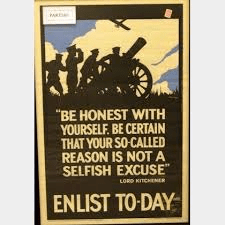Sepoy soldiers fighting for the British Empire in Europe is an example of this.
What is imperialism?
Transportation technologies utilized in WWI.
What were tanks, steamships, trains, cars, planes, and motorcycles.
Front characterized by trenches, along the borders of France/Germany/Austria.
What was the Western Front?
When the fighting continues in a war, but progress and territory are not significantly gained. This happened 6 months into WWI (especially in the trenches on the Western Front).
What is a stalemate?
Russia and China would both have these kinds of wars after their Tsar or Emperor abdicated (or was assassinated) to then determine what type of leadership and government would replace dynastic China and the Russian Tsar.
What are civil wars?
Georges Clemenceau.
Who was the French Prime Minister during World War I?
Naval technologies used in WWI.
What were submarines (U-boats) and Dreadnaughts (giant battleships)?
Once this British passenger ship was sunk by a German U-Boat (it was carrying American civilian passengers and a whole lot of munitions from the United States), the United States ended its neutrality and officially entered the war.
What was the Lusitania?
The land between the trenches.
What is "No-Man's Land"?
When Vladimir Lenin died in 1924, the power vacuum he left would be replaced by this deadly dictator, who he didn't personally like or trust.
Who was Joseph Stalin?
Woodrow Wilson.
Who was the president of the United States during World War I and author of the 14 points (which was not added to the Treaty of Versailles, but was a peace plan with instructions about how to prevent future wars, like not having alliances and an international association (The League of Nations) to have representatives there to prevent those wars.
Weapons used that dominated the western front?
What were machine guns, artillery and poison gas? Hand grenades too...
Germany attempted to keep the United States and Mexico out of the war by attempting to talk Mexico into fighting the United States to regain the land they lost in the Mexican American War in 1848. This was discovered when a this telegram was intercepted and published by the British.
What was the Zimmerman note or telegram?
This recruitment poster for the war is an example of nationalist ______________________, which glorifies war and plays on what a citizen's duty is. 
What is propaganda?
His “Three People’s Principles: Democracy, Nationalism and livelihood; he was western educated and wanted to modernize China while not fully abandoning Confucian principles as part of tradition, there were still regional warlords and other competing factions, so China was not fully united under him and the “nationalists” aka the Kuomintang.
Who was Dr. Sun Yat-Sen?
David Lloyd George.
Who was the Prime Minister of Great Britain during World War I?
Communication technologies utilized in World War I.
What were telegrams and telephones?
The eastern front of the war was fought mainly in these two areas.
The British and French had more human resources to fight a war for this reason.
What is they had massive overseas empires with millions of people that they could recruit into their militaries?
According to the ideas of Karl Marx, the proletariat (who were these people) were the ones who would (and should) rise up against their capitalist oppressors (and employers) to lead a revolution against capitalism.
Who were the industrial workers?
Kaiser Wilhelm II.
Who was the last German king and emperor, during World War I?
This new technology was mostly used for scouting and reconnaissance.
What were airplanes?
Japan fought for the allied side to gain this Central Power's Asian colonies.
What was Germany?
Russia and China were slower to modernize/industrialize in the 19th century (for different reasons, but traditional government leaders and practices are a common theme), they were also slow to institute these Enlightenment ideas such as freedoms of speech, movement, the press, assembly, protest and religion.
What are civil liberties?
This plagued the Russian population during the war, which further spurred them to revolution.
What is famine?